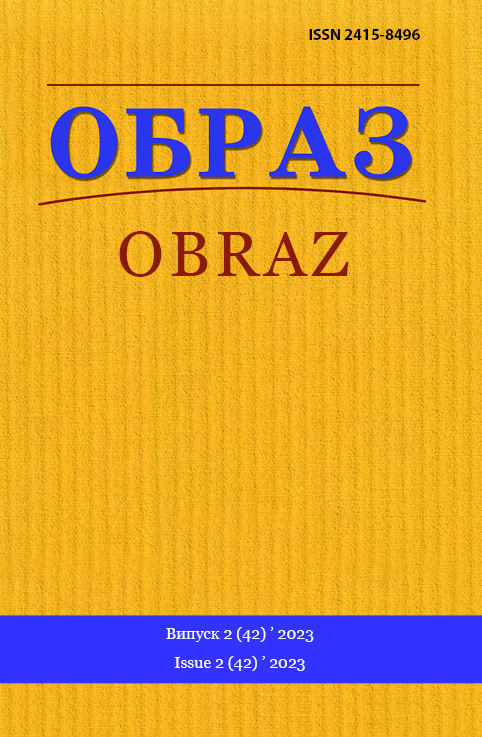Анотація
У статті розглядається культурний код народу в медійному просторі. Визначено, що культурний код є складовою культури народу, відображенням його світосприйняття та індикатором самобутності. Результати дослідження вказують на те, що актуальним осередком розвитку культурного коду народу є медійний онлайн-простір, у межах якого він стрімко та виразно реалізується завдяки широкому спектру можливостей мережі «Інтернет». Однак сучасна українська блогосфера має певні обмеження, які змушують блогерів постійно змінювати підходи до розвитку культурного коду народу в мережах «Instagram», «TikTok» та «Facebook».
Посилання
1. Badiul, V.V. (2018), “Codes of culture in the aspect of cultural interpretation of phraseological units”, Zakarpatsjki Filologhichni Studiji [Transcarpathian Philological Studies], vol. 6, pp. 7–11.
2. Batsevych, F.S. (2007), Dictionary of Terms of Intercultural Communication, Dovira, Kyiv, 205 p.
3. Bylytsia, U.Ya. (2016), “Codes of culture in the image of a person in the English-speaking picture of the world (on the material of comparative phraseology)”, Naukovi zapysky nac. un-tu “Ostrozjka akademija” [Scientific notes of the National Ostroh Academy University], vol. 62, pp. 41–44.
4. Harbera, I.V. (2017), “Representation of the somatic code of the culture of the concept “Man” (based on the phraseology of eastern steppe Ukrainian sayings)”, Odesjkyj linghvistychnyj visnyk [Odessa Linguistic Bulletin], vol. 9, no. 2, pp. 69–73.
5. Savchenko, L.V. (2013), The Phenomenon of Ethnocodes of Spiritual Culture in the Phraseology of the Ukrainian Language: Etymological and Ethnolinguistic aspects, Dolya, Simferopol, 600 p.
6. Fylypchuk, S. V. (2017), “Media space as a reflection of religious and non-religious activities of Christian denominations”, Visnyk Mariupoljsjkogho derzhavnogho universytetu Serija: Filosofija, Kuljturologhija, Sociologhija [Bulletin of the Mariupol State University Series: Philosophy, Cultural Studies, Sociology], vol. 14, pp. 164–172.
7. Sharmanova, N.M. (2013), “Cultural codes and their representation in established verbal complexes”, Filologhichni Studiji: nauk. visn. Kryvorizjkogho derzh. pedaghogh. un-tu [Philological studies: Scientific bulletin of Kryvyi Rih State Pedagogical University], vol. 9 (2), pp. 194–204.
8. Chen, C., Gotti, G., Kang, T. (2018), “Corporate codes of ethics, national culture, and earnings discretion: international evidence”, J Bus Ethics, vol. 151, pp. 141–163.
9. Hall, S. (1997), Representation: Cultural Representations and Signifying Practices (Culture, Media and Identities series), SAGE Publications Ltd; First Edition, 408 p.
10. Higson, A. (2000), The Limiting Imagination of National Cinema. M. Hjort and S. MacKenzie (eds.). Cinema and Nation, Routledge, London and New York, pp. 63–74.
11. Hyatt, J., Simons, H. (1999), “Cultural Codes – Who Holds the Key? The Concept and Conduct of Evaluation in Central and Eastern Europe”, SAGE Publications, vol. 5, no. 1, pp. 23–41.
12. Norton, M. (2019), “Meaning on the move: synthesizing cognitive and systems concepts of culture”, Am J Cult Sociol, vol. 7, pp. 1–28.
13. Statista (2023), “Most popular social networks worldwide as of January 2023, ranked by number of monthly active users”, available at: https://www.statista.com/statistics/272014/globalsocial-networks-ranked-by-number-of-users/ (accessed 02 July 2023).

Ця робота ліцензується відповідно до ліцензії Creative Commons Attribution 4.0 International License.

